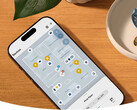Matter, the IoT connectivity standard which aims to become the universal smart home standard, has just been upgraded to version 1.2. This is a significant change, upgrading support from mostly smart lighting and locks to nine new device types, including large home appliances. It's an important step towards giving users fairly granular control over a wide variety of devices through their platform of choice, including but not limited to Apple Home, Amazon Alexa, Google Home and Samsung SmartThings.
The nine new device types include appliances like refrigerators, room air conditioners, dishwashers, washing machines, robot vacuums, fans and air purifiers. They will support basic start stop and operational controls like temperature settings (refrigerators and ACs), modes (robot vacuums and fans) as well as progress notifications like cycle completion and error reporting. Air quality sensors and smoke and CO2 alarms have also been added, with notifications for alarm signalling and sensor readings.
In addition to new device types, there are new features that will help client applications represent individual devices based on their colour/finish, as well as their location around the home and in multi-device clusters. The addition of generic descriptions and operational states is another step towards enabling users to get a one-stop access point to all devices, without resorting to separate apps or ecosystems for different functions.
With this update, the Connectivity Standards Alliance (CSA) has made a huge leap in strengthening the backend for connected devices to talk to one another. However, realising the ultimate goal of a perfectly unified smart home required several more pieces to fall into place. Both device manufacturers as well as app ecosystems like Amazon Alexa, Apple Home and Google Home will still have to implement these specifications on their end, and that could take some time.
Buy the Blink Outdoor 4 Floodlight wire-free security camera, and the Ring Video Doorbell bundle with Echo Show 5 on Amazon


























